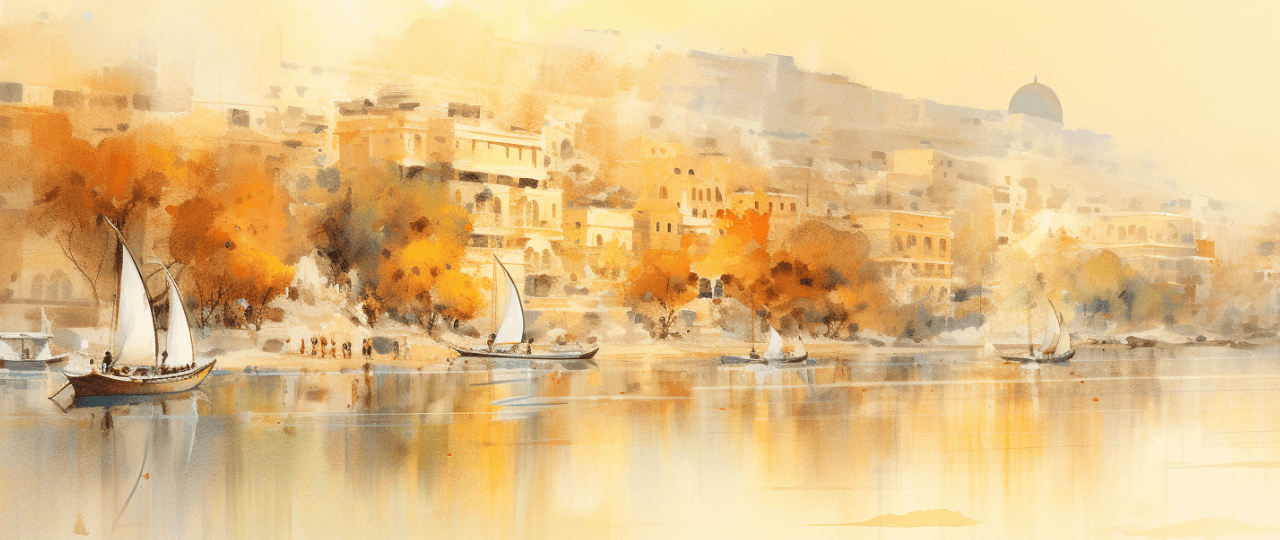A brief overview of Aswan’s significance and allure
Aswan, located on the Nile River in southern Egypt, is a tranquil city known for its rich ancient history and stunning natural beauty. The majestic Abu Simbel temples, the Unfinished Obelisk, and the modern Aswan High Dam are key attractions. The city offers a unique blend of African and Arabian culture, evident in its lively markets and traditional Nubian villages. Visitors can enjoy serene Nile cruises, explore ancient architectural wonders, and experience the local hospitality in this peaceful retreat, making Aswan a must-visit destination for those seeking both relaxation and cultural enrichment.
Best Time to Visit Aswan
Overview of weather conditions by season
Winter (December to February)
Winter is the most comfortable season to visit Aswan. The weather is cooler with average daytime temperatures ranging from 20°C to 25°C (68°F to 77°F). Nights can be significantly cooler, so bringing some warmer clothing is wise.
Spring (March to May)
The temperatures climb in the spring, particularly in late April and May. While March might still be comfortable, with average highs around 28°C (82°F), temperatures in late spring can reach up to 35°C (95°F) or more.
Summer (June to August)
Summers in Aswan are scorching and dry, with daytime temperatures often exceeding 40°C (104°F). This season is generally considered too hot for comfortable sightseeing, especially for those not used to extreme heat.
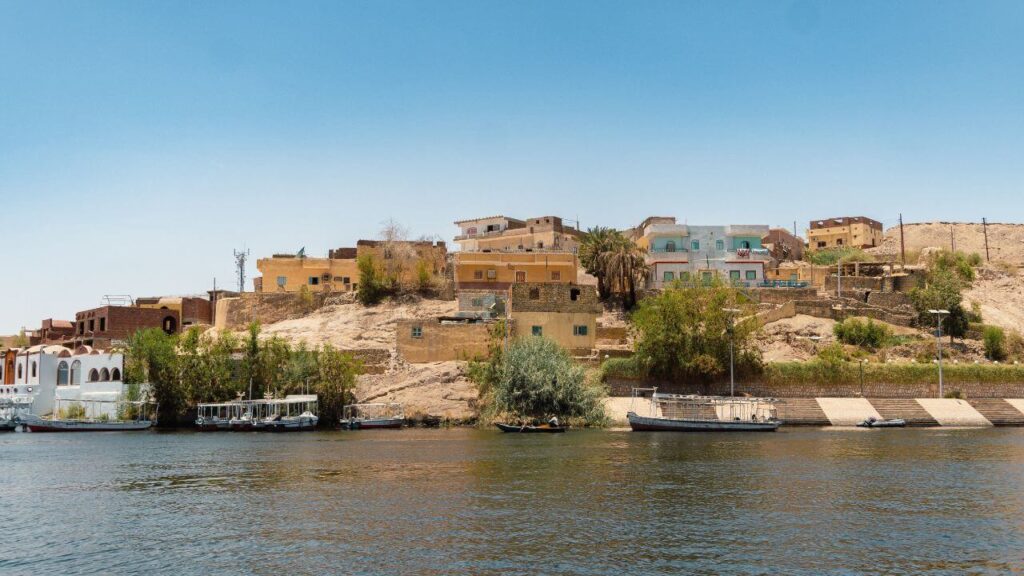
Autumn (September to November)
The heat starts to recede in the autumn, but September can still be quite hot, with temperatures often above 35°C (95°F). Conditions become more comfortable in late October and November, with highs ranging from 30°C to 35°C (86°F to 95°F).
Recommended travel periods and why
The most recommended time to visit Aswan is during the winter months, from late November to early February, when the weather is cooler and more comfortable for exploring the outdoor archaeological sites and enjoying Nile cruises. It’s the peak tourist season due to the favorable weather, so it’s also a lively time to experience the city’s cultural vibrancy. However, you should be prepared for potential crowds at major attractions.
Early spring (March and early April) and late autumn (late October and November) are also good times to visit. These shoulder seasons offer relatively warm weather without the intense summer heat, and there are usually fewer tourists, which might mean less crowded attractions and potentially lower prices for accommodations and tours.
Visitors should always consider their comfort regarding heat and crowds when planning a trip to Aswan and potentially adjust their itineraries to include more indoor activities during the midday heat in warmer months.
Getting There and Around
International Travel Options to Egypt and Domestic Travel to Aswan:
Air Travel
- Most international travelers arrive in Egypt through Cairo International Airport or Hurghada International Airport, which are well-connected to various cities worldwide.
- From Cairo, EgyptAir operates regular flights to Aswan International Airport, a convenient option with the flight taking approximately 1 to 1.5 hours. It’s advisable to book these flights in advance, especially during peak tourist seasons.

Trains
- Egypt has a well-established railway network, with Aswan easily accessible by train from major cities like Cairo and Luxor.
- The journey from Cairo to Aswan by train can take around 13 hours. Travelers have the option to book overnight sleeper trains, which offer more comfort, or day trains with first and second-class tickets.
Buses
- Various bus companies operate long-distance services connecting Aswan with cities like Cairo, Luxor, and Hurghada.
- The journey by bus is lengthy (around 13 hours from Cairo) but economical. Buses vary in terms of comfort levels, with some offering air-conditioned, reclining seats and onboard restrooms.
Local Transportation Options in Aswan
Taxis and Rideshares
- Taxis are a prevalent and convenient way to get around Aswan. They’re readily available at the airport, train station, and various locations throughout the city. It’s wise to agree on a fare before starting the journey to avoid misunderstandings later.
- Ridesharing services may be available, providing a convenient and often more predictable pricing structure than traditional taxis.
Ferries and Boats
- The Nile River is a central transport route in Aswan. Public and tourist ferries operate between the city and Elephantine Island, as well as other nearby attractions.
- Private boat tours or feluccas (traditional wooden sailing boats) are popular for sunset cruises and short trips along the Nile.
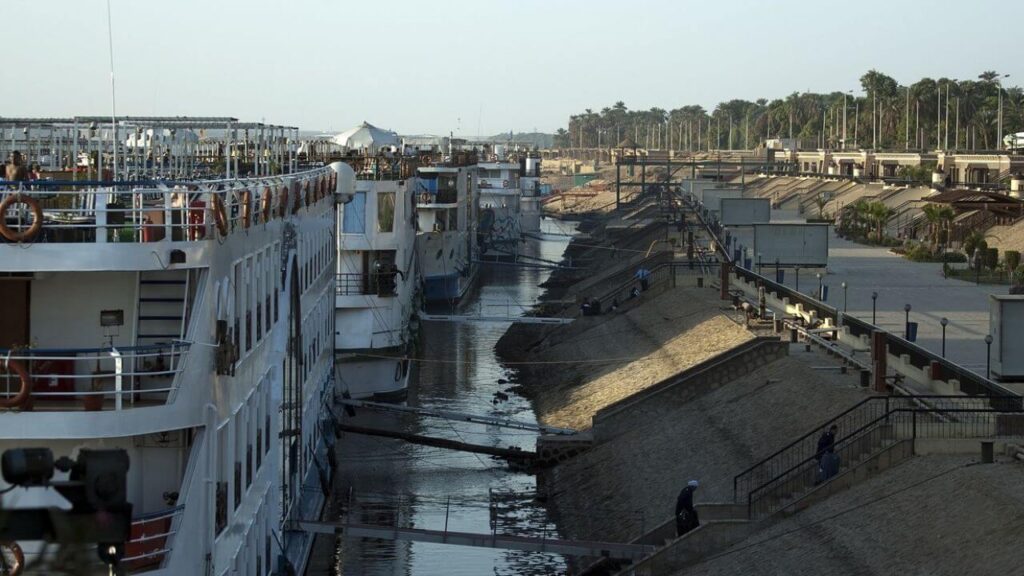
Bicycles and Walking
- Aswan is a relatively compact city, making walking a viable option, especially during cooler months. Many attractions are located within a reasonable distance of one another, particularly along the Nile Corniche.
- Bicycle rentals are available, offering a fun and flexible way to explore the city at your own pace. They’re ideal for short distances and less crowded areas, although it’s advised to be cautious due to the lack of dedicated cycling lanes.
When planning your transportation in and around Aswan, consider the time of year (due to heat) and your comfort and safety, especially if you opt for more adventurous options like bicycles or walking. Always carry a map (physical or digital) and the contact information of your accommodation in case you need directions or assistance.
Must-See Attractions in Aswan
Philae Temple
This architectural wonder was part of a rescue operation by UNESCO to save it from flooding caused by the Aswan High Dam. The temple, dedicated to the goddess Isis, now resides on Agilkia Island and is accessible by a short boat ride. Its intricate carvings and hieroglyphics offer insight into ancient Egyptian religion and culture.
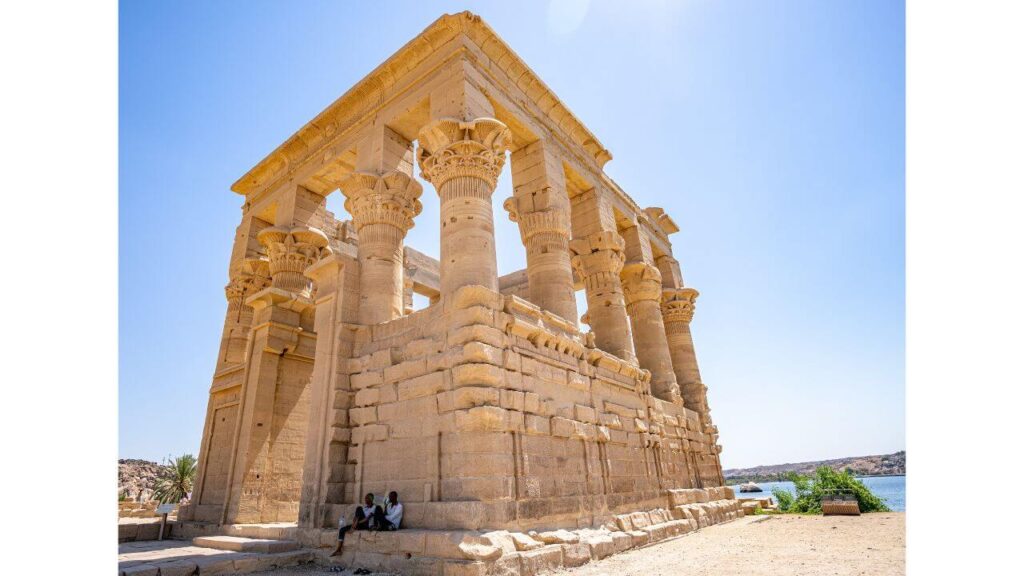
Unfinished Obelisk
Providing unique insight into ancient Egyptian stone-working techniques, this obelisk lies in an ancient granite quarry in Aswan. It would have been the largest obelisk ever erected—if it had been completed. Its creation was likely abandoned due to cracks that appeared in the granite during its construction.
Aswan High Dam
An engineering marvel built in the 1960s, the Aswan High Dam controls the inundation of the Nile and produces hydroelectric power. The creation of the dam formed Lake Nasser, the world’s third-largest artificial lake. Visitors can learn about its construction and its impact on the region’s ecology and human habitation and enjoy stunning views of Lake Nasser.
Nubian Museum
This museum houses a significant collection of artifacts that reflect the culture, history, art, and civilization of Nubia. It was established to preserve the cultural heritage that was lost under Lake Nasser after the construction of the Aswan High Dam. The museum’s exhibits span from prehistoric times through to the Islamic period.
Elephantine Island and the Aswan Museum
Elephantine Island, located in the middle of the Nile at Aswan, is full of relics, including the ruins of ancient temples dedicated to various gods. The Aswan Museum on the island showcases artifacts from Nubia and Elephantine, including items submerged by Lake Nasser’s waters.
Nile River Cruises
A cruise on the Nile is a quintessential Aswan experience, offering spectacular views of the city, the desert, and life along the river. Visitors can choose from a traditional felucca sail, a luxury cruise, or a motorboat ride, some of which offer meals and entertainment onboard.
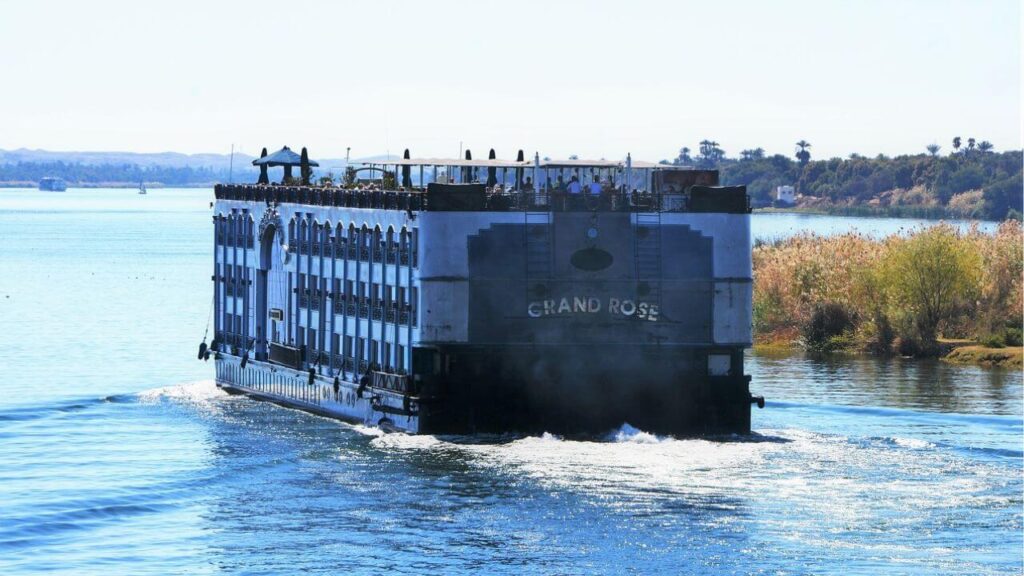
Nubian Villages
Visiting a Nubian village like Gharb Soheil allows travelers to experience the Nubian people’s vibrant culture, colorful houses, and traditional lifestyle. With their rich history and unique customs, these villages are often accessible by boat from Aswan.
Kitchener’s Island (Aswan Botanical Garden)
This small, lush oasis in the Nile is known for its botanical garden, full of exotic plants and trees imported from all over the world. It’s a perfect place for a stroll, a picnic, or simply to enjoy tranquility away from the bustling city.
Each attraction offers a different perspective on Aswan’s rich tapestry of history, culture, and natural beauty, ensuring visitors have a diverse and enriching experience.
Accommodations
Luxury Hotels in Aswan
Aswan is home to several high-end hotels and resorts that cater to those looking for luxury accommodations. These establishments offer plush rooms, exquisite dining options, spas, pools, and stunning views of the Nile River. Notable options include the Sofitel Legend Old Cataract Aswan, which combines historic grandeur with modern luxury, and the Mövenpick Resort Aswan, situated on Elephantine Island and providing panoramic views of the Nile.
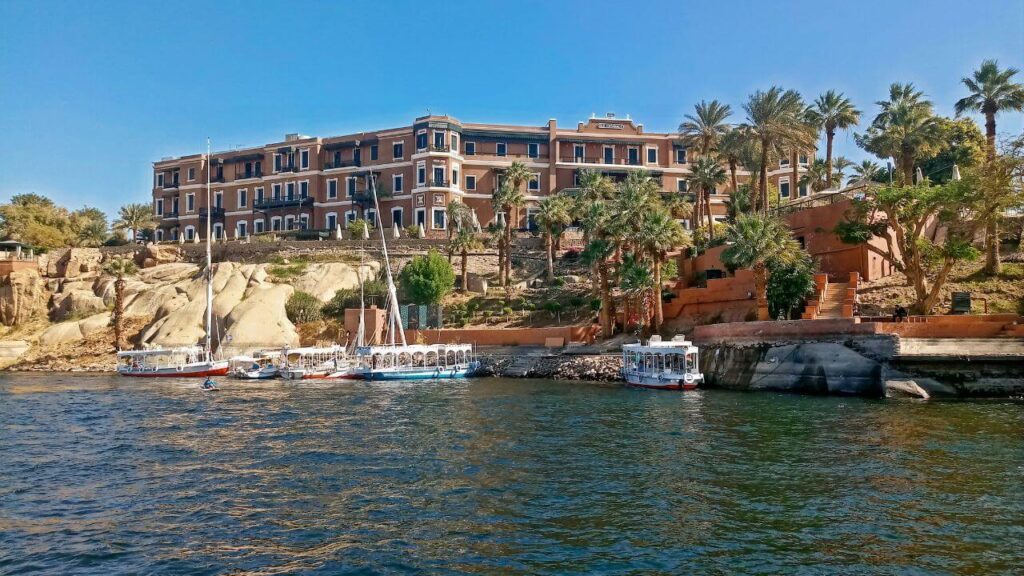
Mid-range
Several mid-range hotels offer excellent services, comfortable rooms, and desirable amenities for travelers seeking comfort without the high price tag. These accommodations often feature beautiful locations, friendly service, and satisfying amenities. Options like the Basma Hotel Aswan and the Citymax Hotel Aswan provide good value for money, balancing comfort, convenience, and cost.
Budget
Budget travelers will find numerous affordable accommodations in Aswan, ranging from hostels to budget hotels. These options prioritize basic comfort and affordability, often providing simple rooms, communal spaces, and sometimes including breakfast. The Hathor Hotel and Nubian Oasis Hostel are examples of budget-friendly options that don’t compromise on the essentials while offering a genuine sense of place.
Recommendations for Immersive Experiences
Nubian Guesthouses
For an immersive cultural experience, staying in a Nubian guesthouse is a must. These accommodations are often family-run and offer an intimate insight into Nubian culture, architecture, and hospitality. Guesthouses like Anakato and Fekra Cultural Center provide unique, colorful accommodations, traditional cuisine, and the opportunity to engage with local customs and traditions.
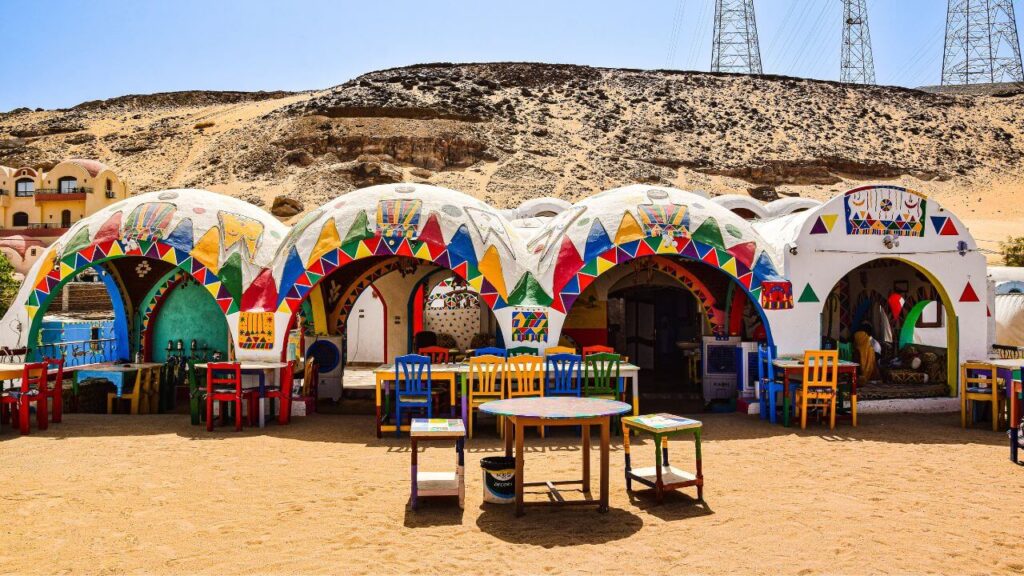
Nile Cruises
Opting for a Nile cruise is another way to have an immersive lodging experience. These riverboats range from lavishly decorated steamships reminiscent of the golden age of travel to more modern luxury ships. They not only provide accommodations but also a moving viewpoint from which to appreciate the Nile’s scenery, with guided excursions to temples and other historical sites along the way. Companies like Sanctuary Retreats and Oberoi Zahra Luxury Nile Cruiser offer journeys that are both comfortable and culturally enriching.
Island Resorts
Staying on one of the islands in the Nile within Aswan’s reach offers a tranquil and immersive experience. Properties like the Mövenpick Resort on Elephantine Island allow guests to escape the hustle and bustle of the mainland while enjoying panoramic river views, botanical gardens, and ancient relics.
Choosing the right accommodation in Aswan can significantly enhance your travel experience, whether you prioritize luxurious comfort, cultural immersion, budget-friendliness, or a combination of these aspects. Always consider location, guest reviews, amenities, and your itinerary when making a selection.
Food and Drink in Aswan
The cuisine in Aswan is a delightful blend of traditional Egyptian flavors and Nubian heritage. It offers a variety of dishes characterized by the generous use of herbs and spices, with staples including legumes, vegetables, and meats.
Local Specialties
Tamiya (Falafel): Made from ground fava beans and spices, these deep-fried balls are a popular snack or meal, typically served on pita bread with vegetables and tahini sauce.
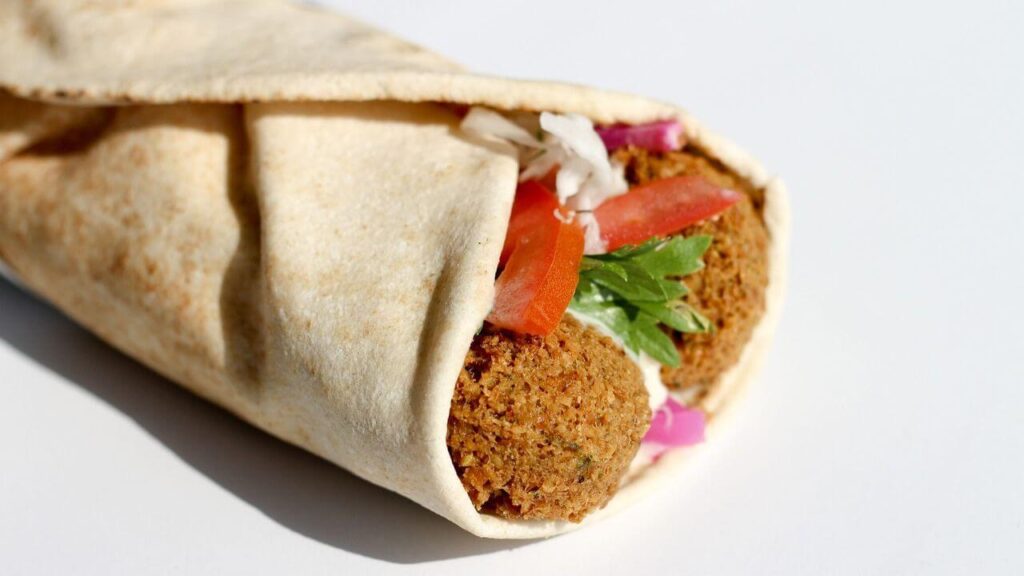
Koshari: Considered Egypt’s national dish, koshari is a comforting mix of rice, macaroni, lentils, chickpeas, and fried onions, and is topped with a spicy tomato sauce and vinegar.
Molokhia: A traditional soup made from jute leaves, finely chopped and cooked with garlic and coriander, often served with chicken or rabbit meat.
Grilled Fish: With the Nile River’s proximity, fresh fish is a local specialty in Aswan. It’s often grilled and served with a variety of sides and sauces.
Nubian Dishes: These include unique preparations like ‘Shamsi’ bread and stews spiced with indigenous herbs.
Recommended Restaurants, Cafes, and Street Food Vendors
Restaurants
- Al Dokka: A restaurant offering traditional Nubian food with a great atmosphere and Nile views.
- Panorama Restaurant: Located in the Sofitel Legend Old Cataract Aswan, it provides a luxurious dining experience with a mix of international and local cuisines.
Cafes
- Al Qahwa Cafe: A popular spot offering traditional Egyptian coffee and tea, it’s a great place to relax and watch local life.
- Nubian Dream: Known for its traditional decor and authentic local teas and snacks.
Street Food
- Aswan’s streets are filled with vendors selling traditional Egyptian street foods like tamiya, koshari, and shawarma. The areas around the market and the Corniche are particularly known for their variety.
Dietary Considerations and Tips for Travelers
Vegetarian/Vegan
Traditional Egyptian cuisine offers many dishes that are suitable for vegetarians and sometimes vegans, such as tamiya, koshari, and molokhia without meat. However, it’s always wise to ask about ingredients, especially broths or hidden elements like dairy or eggs.
Allergies and Sensitivities
If you have food allergies, it’s crucial to learn how to clearly communicate this in Arabic or have it written in Arabic to show restaurant staff. Not all street food vendors or local restaurants might be aware of allergen information.
Water
It’s advisable to drink bottled water instead of tap water to avoid potential stomach issues. Also, ensure your ice is made from bottled or purified water.
Hygiene
When eating street food, assess the vendor’s cleanliness. Look for places that are busy with locals—they’re likely to have fresh, reliable selections.

Cultural Norms
Remember to respect local customs and traditions related to meal times, dining etiquette, and acceptable behavior in public eating spots.
Enjoying the local cuisine is a journey through the cultural and historical layers of Aswan, offering travelers an authentic taste of Egypt and Nubia’s rich culinary heritage.
Festivals and Events in Aswan
Aswan hosts several festivals and events that are of great interest to travelers, offering unique insights into the culture and traditions of the region. Here’s a brief overview:
International Aswan Sculpture Symposium
- Usually, it takes place between January and March.
- Artists from around the world gather to work on granite sculptures.
- The event promotes cultural exchange, and the works often remain in the city, decorating various public spaces.
Aswan International Film Festival
- For an annual event, the date can vary, so it’s advisable to check the current year’s schedule.
- Showcases a variety of films with a focus on African cinema.
- Engages the community with film screenings, workshops, and panel discussions.

Egyptian National Holidays
- Include Sham El-Nessim (Spring Celebration, date varies as it’s celebrated the Monday after Coptic Easter), and Eid al-Fitr and Eid al-Adha (Islamic holidays with varying dates based on the lunar calendar).
- These holidays are marked by festive foods, family gatherings, and general public celebrations.
Aswan International Music Festival
- Dates vary, often held annually.
- The event showcases traditional Nubian performances, along with other music genres.
- Concerts and performances are held at various venues throughout the city.
For travelers, participating in these festivals and events offers a deeper understanding of the local culture and traditions. It’s always a good idea to check the dates of these events before your visit, as they can change from year to year. Also, during national holidays, keep in mind that public transportation and some services might be limited due to festivities.
Cultural Etiquette and Tips
Common Local Customs and Behaviors to Be Aware Of
Respectful Interaction: Greetings are important in Egyptian culture. A friendly “Salaam alaikum” (Peace be upon you) is a good start. Handshakes are common, but wait for a person of the opposite sex to extend their hand first.
Public displays of affection are not widely accepted, especially near religious or historical sites.
Respect the predominantly conservative nature of Egyptian society, and be mindful of discussions around politics and religion.
Photography: Always ask for permission before taking photos of locals, especially women, and be respectful of places where photography is prohibited.
Tipping (Baksheesh): Tipping is a part of the culture, and small tips are expected for many services, from restaurant servers to restroom attendants.

Dress Code, Particularly for Religious and Historic Sites
General Dress: Modesty is key. Both men and women should aim to cover their shoulders and knees, especially when visiting religious sites or older, conservative neighborhoods. Lightweight, loose-fitting clothing is advisable to keep you cool in the hot climate.
Religious Sites: Women might be required to cover their heads when entering mosques; it’s a good idea to carry a scarf for such occasions. Shoes should be removed before entering the prayer areas of mosques.
Historic Sites: While there’s generally no strict dress code for historic sites, dressing modestly shows respect and can also protect you from the sun.
Tips on Bargaining and Shopping in Local Bazaars
Bargaining: Haggling is part of the shopping experience in local bazaars. Never accept the first price given, as it’s expected that you’ll negotiate. Start at around 50-60% of the asking price and work your way to a middle ground. Be respectful and keep it light-hearted. If you can’t reach a satisfactory price, it’s okay to walk away. Often, the vendor will call you back with a better offer.
Shopping: Bazaars are vibrant places filled with a variety of goods. It’s good to explore thoroughly before making a purchase. Be cautious of counterfeit products, especially when buying spices, perfumes, or papyrus. Genuine papyrus is translucent when held up to the light, and reputable spice sellers should have a high turnover. If you’re unsure about the price or authenticity, consider shopping at government-approved stores, although you might pay a bit more.
Currency: Keep plenty of small changes for purchases, as vendors may not always have change. While many vendors accept U.S. dollars or euros, you’ll get a better deal paying in Egyptian pounds.
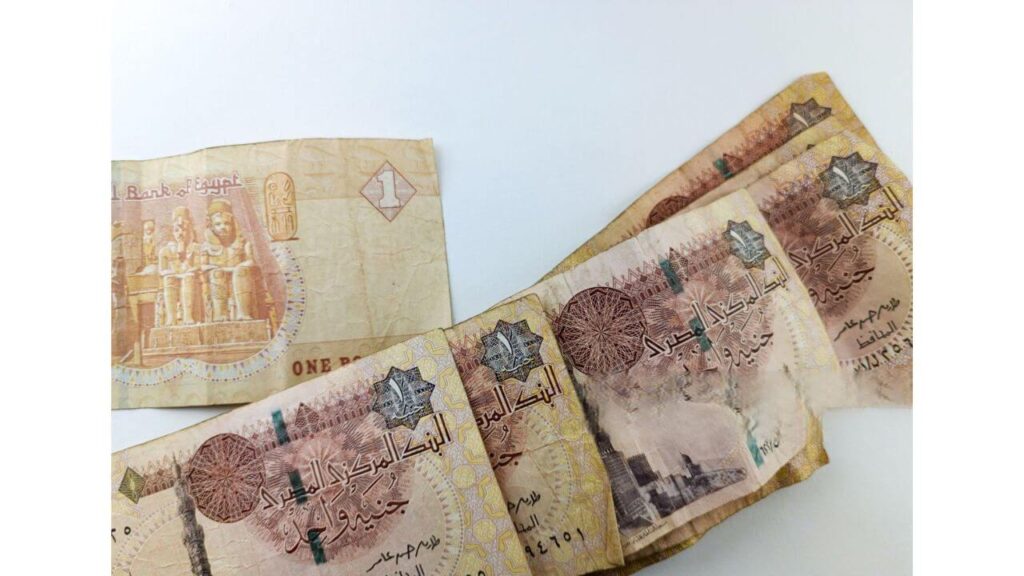
Understanding and respecting local customs and etiquette are crucial to the travel experience. Being mindful of these cultural norms will enrich your visit and foster positive interactions with the local community in Aswan.
Health and Safety
When traveling to Aswan, as with any destination, it’s important to stay informed about the health and safety guidelines to ensure a worry-free trip. Below are some tips and information regarding health and safety for travelers in Aswan:
General Safety
- Aswan is generally considered one of the safer cities for tourists in Egypt. However, it’s always wise to stay alert, especially in crowded areas, and keep an eye on your belongings.
- Avoid walking alone in less populated or unlit areas at night, and always hire reputable guides for any excursions.
- Political gatherings and demonstrations should be avoided, as they can escalate. Always stay informed about the local news and follow the advice of local authorities.
Health Precautions
- Drink only bottled or treated water, and avoid ice as it may have been made using tap water.
- Stick to eating well-cooked foods, and be cautious with street food to avoid potential stomach issues. Fruits you can peel yourself are generally safe.
- The sun can be extremely strong, so use a high-SPF sunscreen, wear a hat, and stay hydrated.
- Make sure you are up-to-date on routine vaccinations. Hepatitis A and Typhoid vaccines are often recommended for most travelers due to the risk from food and water.
- Travel insurance, including medical evacuation coverage, is highly recommended.
Scams and Harassment
- Beware of common tourist scams. Always agree on taxi fares beforehand, be cautious if strangers offer unsolicited help, and verify tour operators’ credentials.
- Women travelers might experience unwanted attention. Dressing conservatively and avoiding eye contact can help.
Travel Advisories
- Check your country’s travel advisory for Egypt before planning your trip and stay updated while you’re there through your embassy or consulate. Situations can change rapidly, and your country’s embassy provides the most reliable information.
- Register with your embassy if possible so they’re aware of your presence in the country and can provide assistance in case of emergency.
Local Laws and Customs
- Respect local traditions, customs, laws, and religions at all times and be aware of your actions to ensure they do not offend.
- Drug laws are strict in Egypt, and the penalties for breaking them can be severe, including long prison sentences.

Budgeting Your Trip to Aswan
General Cost of Traveling in Aswan
- Aswan is relatively affordable compared to Western cities. Accommodation, food, and transport are reasonably priced, though prices at tourist destinations may be higher.
- Entry fees to historical sites range from EGP 50 to EGP 200, with Abu Simbel being one of the more expensive attractions.
- Budget meals can cost as little as EGP 30-50, while dining at more upscale restaurants could range from EGP 100-300 per person.
- Budget accommodations start at around EGP 200-300 per night, mid-range EGP 400-700, and luxury options can exceed EGP 1,000.
Tips for Budget Travel
- Street food and local eateries offer substantial meals at very affordable prices.
- Public ferries across the Nile are an inexpensive way to travel compared to tourist cruises.
- Negotiate taxi fares in advance, or use rideshare apps for more standardized pricing.
- Booking tours and tickets through reputable local agencies or online can often be cheaper than purchasing on-site.
- Consider traveling during the shoulder seasons (spring and fall) for better deals on accommodations and fewer crowds.
Currency Exchange and Transaction Tips
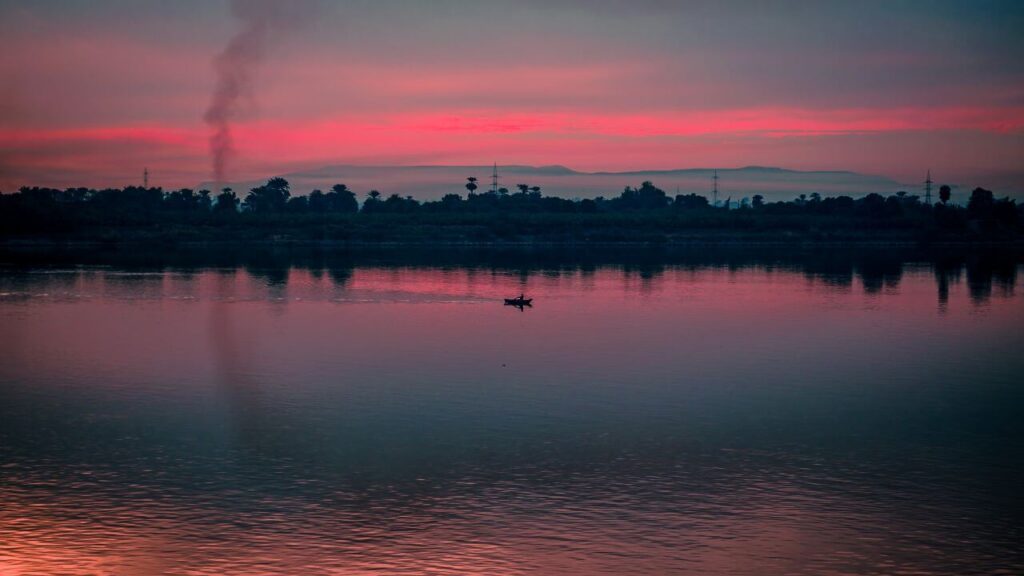
- The local currency is the Egyptian Pound (EGP). It’s best to have some cash since smaller vendors and remote areas might not accept cards.
- ATMs are available in Aswan, but it’s wise to use those in secure locations like banks, hotels, or airports.
- Notify your bank of your travel dates to avoid any issues with your debit or credit card abroad.
- Be cautious of high fees at currency exchange shops in tourist areas. Banks or ATMs usually offer better rates.
- Always keep some small bills and coins handy for tips, small purchases, and public restrooms.
Remember, costs can vary depending on personal spending habits, and it’s always wise to have a little extra budgeted for unforeseen expenses. By planning and being mindful of where and how you spend, you can enjoy Aswan’s rich cultural offerings while keeping your budget intact.
Visiting Aswan offers a rich tapestry of cultural, historical, and natural attractions, making it a must-see destination on any Egyptian itinerary. The city promises a blend of monumental ancient temples, such as Philae and Abu Simbel, and tranquil natural scenes along the Nile. It’s a place where visitors can immerse themselves in thousands of years of history while also enjoying the modern vibrancy of Nubian culture.

